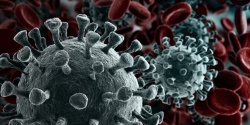Published: 01.07.2022

· Work on the so-called international anti-pandemic treaty is currently underway.
· The World Health Organization, together with national governments and international organizations, including the Bill & Melinda Gates Foundation, Clinton Health Access Initiative and the International Planned Parenthood Federation, is working on solutions that can significantly expand its competences.
· The Ordo Iuris Institute asked the Polish Ministry of Health to provide information on the participation of representatives of the Polish authorities in these works and the position of the Ministry regarding the prepared treaty.
· According to the position of the Ministry, "WHO conclusions are consistent with Poland's priorities" and "WHO must remain a leader in global health security".
· Moreover, Poland agreed to almost all of the Organization's proposals in the survey on the key elements of the treaty under preparation.
· These postulates relate, inter alia, to to global governance and coordination, or the introduction of global pandemic preparedness assessment mechanisms.
SIGN THE APPEAL TO BLOCK THE WHO-LINK TREATY
The first meeting of the International Negotiating Body (INB) on the "anti-pandemic treaty" took place on February 24, 2022. It defined the working methodology. Subsequently, subsequent meetings took place, during which the potential substantive elements of international instruments were discussed and stakeholders who could participate in the discussion were selected. On April 12, a public hearing was organized in which the Ordo Iuris Institute participated. The draft agreement is to be published after the end of consultations, scheduled for October 2022. In turn, the 76th World Health Assembly will present a progress report, so that the document will be adopted at the 77th Assembly in 2024.
The Ordo Iuris Institute sent a request to the Ministry of Health for public information on the participation of its representatives in the negotiations on the treaty. When asked about the position of the ministry on the work in progress, the Ministry of Health replied that it was expressed by Minister Adam Niedzielski during the Second Special Session of the World Health Assembly, organized at the turn of November and December 2021, the Minister emphasized then that "WHO conclusions are convergent with Poland's priorities ”. Adam Niedzielski also called on member states to "continue discussions in the future that will be constructive, inclusive and consensus-based, in order to strengthen global preparedness." The Minister of Health also stressed that "Poland is convinced that WHO must have its share in strengthening global preparedness and remain a leader in global health security" and that "Poland supports efforts" to adopt a global agreement.
The ministry also released the report from the INB meeting on February 24. It emphasized, inter alia, that there is a general consensus regarding the adoption of the treaty, however, establishing its final wording may cause many difficulties due to significant divergences in the positions of individual states.
The Institute also received a questionnaire on the key elements of the treaty under preparation. In it, Poland agreed on 54 out of 57 of the WHO's postulates. These proposals concern, inter alia, "Fair gender, geographic and socioeconomic status" in the global decision-making process. WHO also advocates the implementation of "global and local management and coordination" and "global peer review preparedness mechanisms" for a pandemic. The postulates also concern "coordination carried out by WHO together with UN agencies and other intergovernmental organizations".
In addition, the WHO survey also addresses communication issues such as the fight against "infodemia" (ie, disinformation processes), public information management and "risk communication". The proposals also involve "non-state actors" or the private sector in the entire process.
Poland agreed to almost all of the Organization's proposals. She also directed her own comments to the proposed solutions. They concern, inter alia, vaccination in "vulnerable populations" and involvement in "reducing the risk of transmission of infections" by institutions such as the military and the police. Poland also proposes to prepare management plans for regions with a low level of vaccination, as well as to develop a common testing formula by laboratories. Among the issues raised by Poland daily, there was also the issue of vaccination promotion and control of the information provided. Poland also proposed, inter alia, collecting data on epidemic issues by institutions and transferring them to the supervisory unit.

23.05.2025
We are currently engaging with think tanks and political parties across the continent to collaboratively develop a detailed counter-proposal to the centralist, anti-national, and anti-democratic vision of the European Union promoted by the European Parliament and President Macron.

19.05.2025
• The 78th World Health Assembly, the deliberative body of the World Health Organization, begins today in Geneva.

16.05.2025
On 13 May 2025, James Daniel Jordan, Chairman of the Judiciary Committee of the United States House of Representatives, together with four other members of the Committee, addressed a letter to Michael McGrath, European Commissioner for democracy, justice and the rule of law. The letter inquires how the European Union intends to respond to the actions of Donald Tusk’s government.

15.05.2025
• The European Democracy Shield, an instrument designed to guarantee the EU’s resilience against hybrid attacks and external interference, is currently being developed within European Union institutions.